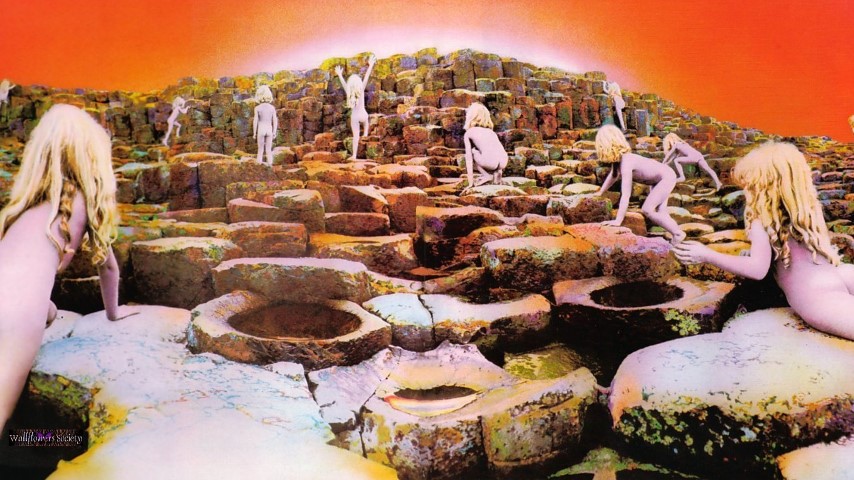
seas with this boomer banger
Led Zeppelin’s ‘Houses of the Holy’ review
By James Wetmore, Contributor
5/5
Houses of the Holy was released March 28, 1973 and quickly became a worldwide success after the London based band had also released the instant smash hit Led Zeppelin IV in 1971. This album sees the group dip their feet into more experimental song structures and instrumentation, with heavier emphasis placed on keys than in their previous, more blues-based recordings.
A perfect example of this experimentation is on “No Quarter,” a seven-minute epic which opens with warbling keyboards played by bassist John Paul Jones before plummeting into heavy guitars supplied by Jimmy Page. After a return to the keys, Robert Plant opens his vocal—coated in effects and sounding close to tears. The bridge showcases Jones’ keys under a clean guitar solo. The track is drenched in effects and filled with odd sounds off in the distance, adding a strange ambience to the track that pulls you further into the mystery that Plant is moaning about.
The album still offers the hard rock that the band has been known for, such as on the tracks “Dancing Days” and “The Song Remains the Same.” Regardless, they still let some of their weirder ideas seep through the cracks, especially on the latter. The group weaves through odd timing and slower sections like butter, while keeping the energy up—
courtesy of the thunderous drumming of John Bonham.
Have you ever just wanted that perfect song for lazing on a Caribbean beach? Have you ever looked for the track to embody the feeling of relaxing with your piña colada, admiring the sunset on your beer belly and Hawaiian beach shorts? Well then, I’ve got the track for you. “D’yer Mak’er” allegedly initially started when Bonham was imitating a reggae beat, which bassist Jones initially disproved of. But, when Bonham sped up the beat and the rest of the band joined in, magic happened.
All in all, this album is full of songs with their own twists and turns. Yet it keeps you comfortably straddled along for the ride with all the recognizable staples of the band. Evolving from their blues rock roots, Led Zeppelin reimagined themselves on this record and stepped into uncharted territory (which would only become more explored on their future releases). This record is deserving of a five out of five rating. The band stepped out of their comfort zones and came out the other side after having journeyed through countless unnamed lands and lost fables, delivering unto us a musical Iliad that still sounds as breathtaking as it had in 1973.



